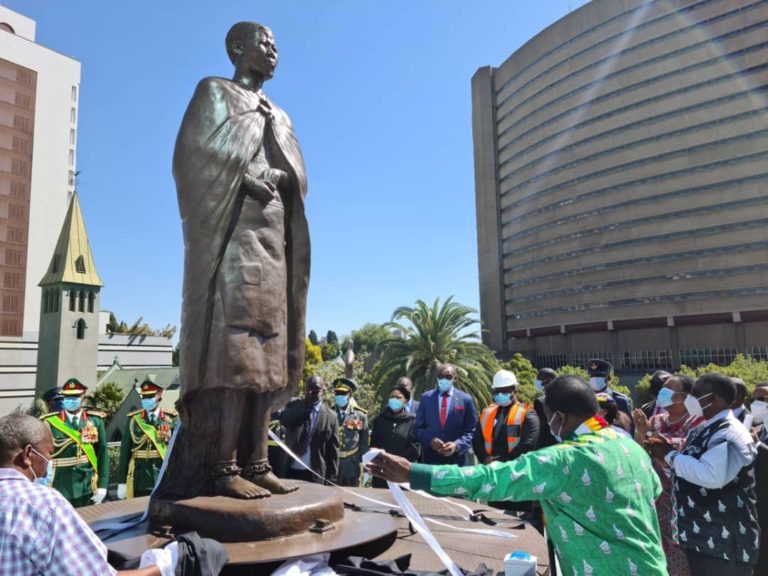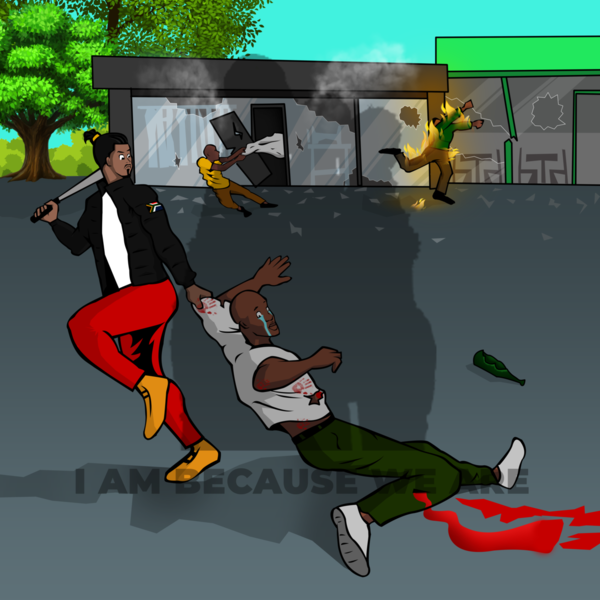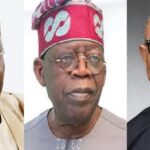Africans and other blacks abroad need to develop a historical consciousness that enables them to revisit their forefathers’ history to validate the true journey of the black race. Slavery, colonialism, Christianity and the colonial education systems have created dominant narratives by the west that have registered successes in whitewashing African and black history.
This erasure continues to systematically act towards whitewashing the history of Africa through European hagiography. As a result, Africa has become a victim of European historiography that exclusively acknowledges its own cultural and historical contributions, dismissing the successes of Africa and the black race along the way.
Before slavery, African progress in the fields of nationalising African knowledge systems was remarkable. More so, through slavery Africans who were forcibly removed from their birthplaces to the United States through slavery, also succeeded in various spheres. Unfortunately, their contributions remain unnoticed despite their importance.
Some blacks taken from Africa participated in the United States war of independence against British oppression. Others also contributed through architectural designs which are today still visible in America. Through information suppression by the white establishment, the heroic adventures and contributions of blacks remain in the periphery. The first person whose blood was spilt in the revolution which freed America from British oppression was a black man named Crispus Attucks. Another black man, Benjamin Banneker, was amongst the team that designed the capital of the United States, Washington DC.
In 1721, the United States went through a perilous phase when it faced a smallpox outbreak. A black slave named Onesimus, who had been bought in 1706 by one influential Boston minister Cotton Mather, shared significant knowledge with his master on how to treat smallpox. According to black tradition, before being enslaved in the United States, Onesimus, whose name means Useful, and his people had knowledge on treating smallpox through variolation. The treatment of smallpox in the United States was not a white man’s discovery, but a knowledge system that was passed by a black slave.
From Onesimus, Mather learnt that in Africa, blacks took pus from the wounds of an infected individual and inserted it into a cut made on a healthy person. This process, while adjudged not to be entirely effective, caused a mild reaction that gave people a degree of smallpox immunity for the healthy individual.
Because of mistrust in African remedies, Mather shared information he acquired from Onesimus with a white physician named Zabdiel Boylston. Recorded history informs one that Boylston tried the technique on several people, including his own son, and was pleased to ‘discover’ that Onesimus’ procedure was a largely successful one.
Through the misrepresentations of white supremacy, Mather and Boylston were hailed as heroes and the African, Onesimus, was nowhere close to securing a place in this important milestone in medicine. And despite his life-saving contribution to the smallpox outbreak, he was still not a free man.
Countless blacks have been unjustly stripped of their rightful recognition as vital contributors to science and medicine, among other disciplines. These also include Lewis Howard Latimer, the black man who invented the carbon filament board that made the light bulb give its glow, continuously. Today credit on who invented the light bulb has been given to Thomas Edison.
While nothing can undo the damage done by such cruel omissions from defining moments in history, Africans need to work hard and do their part to acknowledge these innumerable contributions to humanity by continuing to share these important historical discoveries… Unfortunately, blacks are not told and taught this in school; instead, end up praising the white man.
These past lessons by Africans, slaves and descendants of slaves are never told because they humiliate the white man. To get into the future, the past has to be studied to get new perspectives, unlike the white man’s narrative that continues to brainwash black people by developing false narratives that even other races continue to believe.
Western Philosophy ‘Unimaginative, Even Xenophobic’
In his book Taking Back Philosophy: A Multicultural Manifesto, Bryan Van Norden, a Professor of Philosophy at Yale-NUS College in Singapore writes that the way the west projects African history is “narrow-minded, unimaginative, and even xenophobic.”
There have been ‘discoveries’ through exploratory excursions and military conquests done by white ‘explorers’ through the displacement of Africans in their territories. Statues have been erected in honour of these white ‘explorers’ and places renamed in their honour.
History shows that Africa, originally called Alkebulan, was named after a Roman general Scipio Africanus who had defeated Ethiopians. More so, one of the world’s seven wonders in Zimbabwe, the Victoria Falls, was ‘discovered’ by Scottish ‘explorer’ David Livingstone in 1855. Livingstone named the place Victoria Falls in honour of the British Monarchy’s Queen Victoria.
Livingstone named the falls after the queen, but the Kalolo-Lozi people in Zimbabwe had their own name for it, Mosi-oa-Tunya, “the smoke that thunders.”
Western ideology and narratives have morphed into a false white knight in shining armour, itching to swoop in and enforce their model of “progressive” Eurocentric history over black successes.
Van Norden: “The west has written Africa out of the history of philosophy and black success, presenting all of Western philosophy as a linear progression from the ancient Greeks.”
Professor of Sociology at the University of Zimbabwe (UZ) Claude Mararike said the black race needs to record, research, teach and distribute literature that praises black successes under the “patriotic history” platform.
“We need to teach patriotic history, which is the interpretation of history in our context as blacks and Africans. There has to be more funding into research, publication and circulation of such information. The media (personnel) should be able to dig more into the archives because some history has been distorted,” says Prof. Mararike.
The academic also blamed religion, both Christianity and Islam for enabling colonialism and oppression of the black man through slavery and colonialism.
“The revolutionary patriotic history of Africa also has to be understood from the context of Christianity and Islam as the two religions that have also done a lot of distortions to African history.
“Missionaries are the greatest culprits and the church has been distorting African history and culture. So writing about that is not opening old wounds, but that is the correct interpretation of history and Africa should know these things,” added Prof. Mararike.
Undermining Western Intellectual Foundations
The African Union (AU) and its governments ought to invest in knowledge that shakes the western foundations.
Strides by Africans and blacks from all over are written, the continuous recording of their successes are there. There is evidence that shows that black movements like the #BlackLivesMatter are giant testimonies to undermine racially skewed Western interpretation of history.
History has been white-washed so severely that often, African philosophers who generate ideas about Ubuntu, colonial independence and sovereignty are only regarded as public intellectuals. In the textbooks of Europeans, these African heroes are not incorporated.
The white race seeks to amass all the historical glory, incentives and talents for itself while consciously and voluntarily disadvantaging strong black constituencies.
This is a key matter of national and intellectual independence in which “woke” black students need to raise in order to undermine the intellectual foundations of the West and expose them for their desire for “multicultural inclusion”.
As the West gets away with murder on white-washing history, this continues to reinforce false assumptions that black history is substandard to other cultures in general, but to the dominant white culture in particular.
It is not ahistorical to remind people that Christianity was evil colonial machinery that was used to evangelize Africa.
“Areas of concern are schools and universities. It is unfortunate that in some African countries, they do not want African history to be taught. In the United States, Britain and South Africa, they do not want to teach African patriotic history,” Prof. Mararike continued.
It is time for African governments and the AU to put more funds to promote the Afro-centric movement. This, in the long run, will effect change from the enlightened grassroots.

















